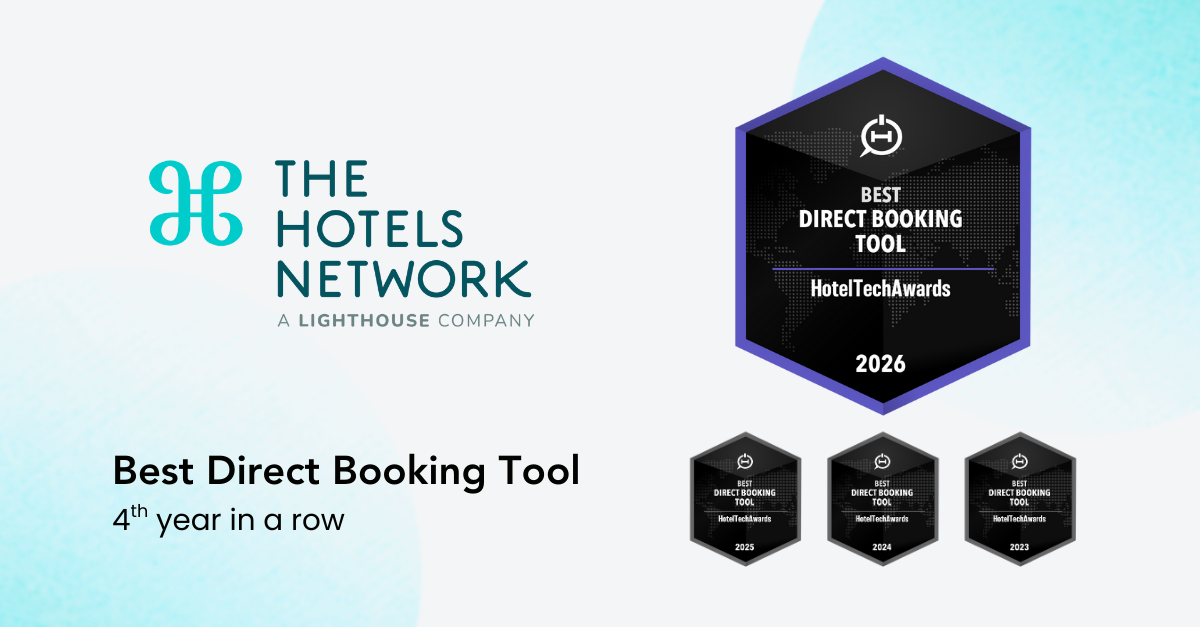AI Voice Agents are revolutionizing hotel operations—shifting guest interactions from overwhelmed front desks to instant, intelligent voice-driven service. Built for hospitality, they eliminate missed bookings, reduce staff strain, and turn every call into a revenue opportunity.

03, Apr 2025
Welcome to "The AI Advantage," a monthly series by Michael J. Goldrich, Chief Experience Officer at The Hotels Network and Founder and Chief Advisor at Vivander Advisors. Each month, Michael explores the latest AI trends and innovations shaping the hospitality industry and their impact on hoteliers.
For decades, the hospitality industry has been locked in a battle to balance operational efficiency with exceptional guest experiences. The equation has always been the same: more time with guests equals better service. Rising costs and labor shortages make that balance increasingly difficult to maintain. But now, a new technology is reshaping hotel operations in a way that fundamentally changes the dynamic.
AI Voice Agents.
Not chatbots. Not IVR menus. Not pre-recorded messages that frustrate guests before they ever reach the front desk. AI Voice Agents represent a new category of automation. One that’s poised to redefine guest service, increase revenue, and free up hotel teams to focus on what they do best: hospitality.
Many people assume AI Voice Agents are just another version of Siri, Alexa, or even ChatGPT, but the reality is vastly different.
ChatGPT and Other Chatbots: While chat-based AI tools excel at generating text-based answers, they lack real-time voice interaction capabilities tailored to handling guest inquiries efficiently.
Siri and Alexa: These assistants can execute simple commands, but they are not designed for complex hotel-related transactions. They provide generalized answers rather than personalized, real-time support.
AI Voice Agents: Purpose-built for hospitality, these systems engage in real, dynamic conversations, understand nuanced guest requests, and even complete reservations or suggest upsell opportunities. They operate seamlessly, available 24/7, and work within a hotel’s specific ecosystem, ensuring consistency in service and accuracy in responses.
Before AI Voice Agents: Imagine a typical evening at a hotel. The front desk is swamped with check-ins, a guest on hold is trying to modify a reservation, and the phone keeps ringing with inquiries about availability and amenities. The team is stretched thin, and some calls go unanswered. A potential guest looking to book directly gives up and heads to an OTA instead.
After AI Voice Agents: The AI system answers incoming calls instantly, providing room availability, processing reservation modifications, and handling FAQs in multiple languages—all while front desk staff focus on delivering exceptional in-person service. Booking inquiries are converted without delay, guests receive prompt assistance, and no revenue opportunities are lost.
The shift is undeniable. AI Voice Agents don’t just assist. They remove friction from the guest experience while improving efficiency and profitability.
Traditionally, the front desk has been the central hub for guest inquiries, from simple requests like room availability to complex booking modifications. But with labor shortages intensifying and expectations for 24/7 instant service growing, this model is straining under its own weight.
Enter AI Voice Agents.
These advanced systems use natural language processing (NLP) and conversational AI to engage guests in fluid, human-like conversations, handling booking inquiries, answering frequently asked questions, and even promoting upsells and exclusive offers. Available around the clock, they eliminate the operational bottleneck that comes with finite human availability.
The result? No more missed booking opportunities. No more frustrated guests waiting on hold. No more front desk staff drowning in repetitive calls when they should be engaging with guests in person.
Never Miss a Booking Again
For decades, the hospitality industry has accepted a painful reality: inquiries come in 24/7, but staff availability doesn’t. AI Voice Agents ensure that every potential guest receives immediate assistance, whether it’s midnight or peak check-in time. From answering room availability questions to completing reservations, they make sure every booking opportunity is captured and not lost to a competitor.
Multilingual Support for a Global Audience
Guests expect seamless communication, regardless of language barriers. AI Voice Agents provide instant, fluent support in multiple languages, making it easier than ever for international travelers to book and interact with hotels without frustration.
Reduced Staff Workload = More Guest Engagement
By offloading routine inquiries, like check-in/check-out times, reservation modifications, and amenity details, hotels give their teams the bandwidth to focus on high-value guest interactions. Instead of being stuck on the phone answering the same five questions, staff can dedicate their attention to creating memorable guest experiences.
A Personalized Experience That Feels Human
Unlike traditional automated systems, AI Voice Agents learn and adapt. They recognize returning guests, remember preferences, and customize responses. Whether it's suggesting a preferred room type or offering a special rate based on past bookings, they create a level of personalization that goes beyond simple automation.
Direct Revenue Growth Through Upselling and Cross-Selling
AI Voice Agents don’t just answer questions. They drive revenue. By recommending room upgrades, exclusive packages, or on-property amenities in real-time, they help hotels increase ADR and ancillary revenue with seamless, conversational upselling.
One of the biggest concerns with AI in hospitality is whether automation will erode the personal, human-centric nature of service. But AI Voice Agents aren’t replacing hospitality professionals. They’re empowering them. By handling the repetitive and transactional, they free up staff to focus on the interactions that truly define a great guest experience.
Hoteliers have long known that time is the most valuable resource in hospitality. AI Voice Agents give it back allowing teams to be more present, more engaged, and more focused on creating memorable moments for guests.
The Future of Guest Engagement Is Here—Start Now to Stay Ahead
The rise of AI Voice Agents marks a turning point for the hospitality industry. No longer a futuristic concept, they are already driving measurable impact in hotels worldwide, boosting direct bookings, reducing operational strain, and ensuring that every guest interaction is efficient, engaging, and revenue-generating.
Hotels that integrate AI Voice Agents now will gain more than just efficiency. They will develop a strategic advantage as the technology continues to evolve. By adopting AI early, hotel teams can refine best practices, train staff on AI-assisted workflows, and optimize the guest experience over time. Those who delay risk falling behind as competitors gain momentum with automation.
For hoteliers looking to stay ahead, the message is clear. AI Voice Agents aren’t just a nice-to-have. They are the next evolution of guest service, one that will define the future of hospitality. The sooner you start, the stronger your position will be in the AI-driven landscape of tomorrow.
ABOUT THE AUTHOR
Michael J. Goldrich is THN's Chief Experience Officer and Founder and Chief Advisor of Vivander Advisors, specializing in digital and AI strategies for thought leadership, thought education, and thought solutions. A leading expert in generative AI, he authored Too Many Hats, Too Little Time. After spending nearly two decades in digital marketing and project leadership for multimillion-dollar brands and startups, his expertise in has established him as a sought-after consultant and a pivotal figure in shaping the future of customer engagement within the hospitality sector. Connect with Michael on LinkedIn.

Posted At Jan 29, 2026

Posted At Jan 19, 2026

Posted At Jan 12, 2026
Check out our BenchDirect Insight Reports by destination
